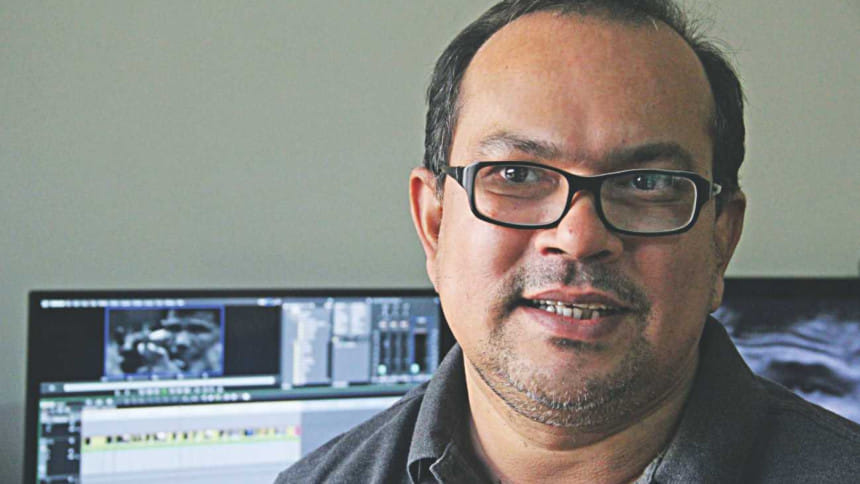Josim Ahmed

Tell us about your entry in the Cannes Film Festival, "Daag". How does it feel to have your film represent Bangladesh in Cannes?
"Daag" is a 13-minute long film, and it deals with our Liberation War. The film tells the story of Shila, a girl who was the victim of rape during the war. The story shows two parallel timelines, which are eight years apart. About Cannes, the feeling is surreal. Being selected there was a huge honor for me.
What prompted you to become a director?
As you probably know, I used to be a reporter in a newspaper. From there I shifted to television reporting and consequently did a lot of documentaries. Documentaries are arguably what converted me into a filmmaker, to be honest.
Who are your inspirations in filmmaking? Do you have any favorite films?
If you're talking about Bangladeshi filmmakers, I would mention the great Tareque Masud. Syed Salahuddin Zaki is one of my most favorite directors and people. However, I got the inspiration of making thriller movies from Alfred Hitchcock; he was an absolute genius when it came to thrillers. Some films which I absolutely love are "Psycho", "Vertigo" and "Dial M for Murder".
Many aspiring filmmakers do not feel that they have enough recourses or incentives to create a proper film. What would you say is holding us back?
To be honest, recourses are not really an excuse anymore. We now see that many incredible films are being shot by iPhones and they are even showcased in various film festivals. We need to step up and take the initiative to make films. We do need resources, but how would you define resources? In my opinion, all the resources you would ever need are story, artists and screenplay. Technicalities are only secondary.
Do you think that our society discourages more artistic films?
Definitely! We have top quality filmmakers who have the capability to do great things. My only gripe is the fact that they have nowhere to sell these films to. The cinema halls here have deteriorated in a major way, and are uninviting for astute film lovers except for a few multiplexes. The entry barrier in the film industry is also quite steep. We need to overcome these for the betterment of our films.
What projects can we expect from you in the future?
I am currently working on a film portraying the lifestyle of Haor, and how people living there are striving against nature itself. Another one is on the notion of the single mother in Bangladesh. Both are unnamed at the moment.
Interviewed by
Sadi Mohammad Shahnewaz

 For all latest news, follow The Daily Star's Google News channel.
For all latest news, follow The Daily Star's Google News channel. 



Comments